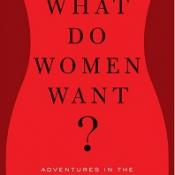 Michael Singer’s The Untethered Soul: The Journey Beyond Yourself is a book that compelled me to pull out my highlighter as I read. It contains a lot of valuable nuggets I’ve been implementing and sharing with the people I work with in therapy.
Michael Singer’s The Untethered Soul: The Journey Beyond Yourself is a book that compelled me to pull out my highlighter as I read. It contains a lot of valuable nuggets I’ve been implementing and sharing with the people I work with in therapy.
Here are some of my big takeaways:
1. Instead of identifying with the incessant chatter in our heads, we can bear witness to it. In doing so, we create awareness and separate ourselves from it, rather than get caught up in it.
We all have that voice in our heads—the one that tells us what to do, what not to do, how we could have done something better. The one that shames us, criticizes us, reminds us. It rarely takes a break, keeping us from falling asleep at night and waiting for us the first moment we stir. Singer compares it to a backseat driver, doing its best to maintain some semblance of control. It narrates the events we experience, but it doesn’t do so objectively. It manipulates. It often causes us to feel as though we’re not okay, or that we’re in need of protection.
What can you do to separate yourself from this chatter?
Singer states that if see yourself as an observer of the voice, you can view it more objectively. You can say to yourself, “These are just my thoughts. Just because they are doesn’t make them true. I don’t have to identify with them.” That awareness is key. Singer encourages us to live in the “Seat of Self”—that space where we sit back and allow events, thoughts, and emotions to pass before us, and keep ourselves from drifting off into the current.
Another strategy is to attribute the chatter to a separate individual. Chances are that “backseat driver” is annoying enough to warrant you banishing it. Would you choose to hang out with a naysayer, criticizer, or catastrophizer? You might tell them you had other plans.
2. We often try so hard to avoid our pain that we construct lives designed by it.
Singer explores how we work hard to create an illusion of safety and control. We define how our lives need to be okay and see alternatives as a threat, taking things personally when they don’t go according to plan. If we don’t face our pain head-on, we orchestrate ways to cover it up or avoid it, thereby letting it rule us.
He gives a wonderful example of having a thorn (your pain) embedded in you and what happens when you don’t do the work of removing it. You start avoiding bumping into things so as not to disturb it; you can’t get too close to people because you don’t want it to be touched; and you can’t sleep because you roll onto it, so you construct a contraption to keep it from touching your sheets. You then need to get specially tailored clothes to accommodate the contraption. That thorn, the pain you are trying so adamantly to avoid, eventually dictates all you do.
If we face our pain and fear instead of working so hard to protect, we grant ourselves permission to be free and to grow.
3. We tend to either cling to or resist things.
Singer describes clinging as “focusing your awareness on one particular object,” so your “emotions stay in one place long enough to become the building blocks of your psyche.” What we focus on expands. If we cling to something, we are likely operating out of fear. We are not allowing it to pass through us so we can be fully present in the next moment. We hold on and get stuck instead.
When we no longer cling or resist, we see fear or pain without satisfying the impulse to protect ourselves from it.
When we resist, we struggle to make the world fit into precepts we’ve defined: what we believe is fair, right, or good. When our world doesn’t match up, we find ourselves fighting, defending, rationalizing, or becoming angry or frustrated. If we let go of the limits we’ve decided upon, we no longer resist. We accept that events exist outside of our comfort zone and relinquish the effort to control or change that.
When we no longer cling or resist, we see fear or pain without satisfying the impulse to protect ourselves from it. This frees up our energy and enables us to be present, not caught in the past or paralyzed by what might happen in the future.
4. We unnecessarily expend a lot of energy reacting and then recovering when we could be enjoying freedom and happiness.
Singer compares this process to a pendulum. So much of our energy is wasted swinging from one extreme to the other—reacting and recovering. A healthier response is to notice a reaction and then choose to relax and release it.
We are most effective when we are balanced. If we forgo the extremes, we naturally have more energy available to us to live our lives fully and with purpose.
5. We qualify our happiness.
We tell ourselves “if/then” statements. If I am 10 pounds thinner/if I get married/if my boss treats me with respect, then I’ll be happy. Singer states choosing happiness can be simple. He provides a wonderful example of a starving man being asked what kind of food he wants, and the starving person simply answering “food” rather than requesting something specific. He’s not picky about the kind of nourishment he receives.
When we are too particular regarding how we define happiness, it becomes less available to us. If we choose it in its broadest sense, we let go of our parameters and opt to be happy with more far more ease and frequency.
Reference:
Singer, M. A. (2007). The untethered soul: The journey beyond yourself. Oakland, CA: New Harbinger Publications, Inc.

The preceding article was solely written by the author named above. Any views and opinions expressed are not necessarily shared by GoodTherapy.org. Questions or concerns about the preceding article can be directed to the author or posted as a comment below.


 5 Life Lessons Driven Home by Paulo Coelho’s ‘The Alchemist’
5 Life Lessons Driven Home by Paulo Coelho’s ‘The Alchemist’ In Review: 'Understanding and Healing Emotional Trauma'
In Review: 'Understanding and Healing Emotional Trauma' A GoodTherapy.org Review of ‘What Do Women Want?’
A GoodTherapy.org Review of ‘What Do Women Want?’

Please fill out all required fields to submit your message.
Invalid Email Address.
Please confirm that you are human.
Leave a Comment
By commenting you acknowledge acceptance of GoodTherapy.org's Terms and Conditions of Use.